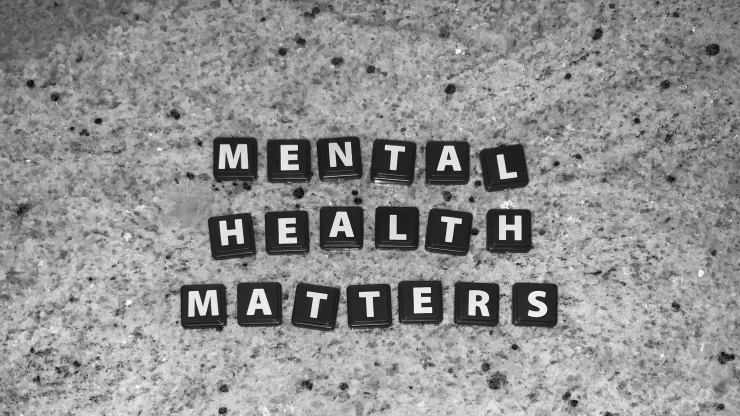Understanding Emotional Intelligence
Emotional intelligence (EI) refers to the ability to recognize, understand, and manage one’s own emotions, as well as the emotions of others.
It is an essential component of social and emotional development, and it plays a significant role in our overall well-being.
People with high levels of EI are more likely to have fulfilling relationships, successful careers, and better mental and physical health.
EI includes four key components: self-awareness, self-regulation, social awareness, and relationship management.
Self-awareness involves recognizing one’s own emotions and how they impact behavior.
Self-regulation refers to the ability to control and manage emotions in different situations. Social awareness involves understanding the emotions and perspectives of others, while relationship management focuses on using emotions to build positive relationships.
Jump to Section
The Link Between Emotional Intelligence and Happiness
Numerous studies have shown a strong correlation between EI and happiness.
People with high levels of EI are better equipped to handle stress and manage negative emotions, which can lead to a more positive outlook on life.
They are also more likely to have strong social connections and positive relationships, which are essential for happiness and well-being.
EI can also help individuals set and achieve meaningful goals, which can lead to a sense of purpose and fulfillment. People with high levels of EI are better able to identify their strengths and weaknesses, which can help them make decisions and pursue opportunities that align with their values and interests.
Developing Emotional Intelligence: Tips and Strategies
Fortunately, EI is not a fixed trait and can be developed over time with practice and effort. Here are some tips and strategies for improving EI:
- Practice self-reflection: Take time to reflect on your emotions and how they impact your behavior. Try to identify patterns and triggers that can help you better understand and manage your emotions.
- Practice empathy: Pay attention to the emotions and perspectives of others. Try to put yourself in their shoes and understand how they might be feeling.
- Practice active listening: When communicating with others, listen attentively and try to understand their point of view. Avoid interrupting or dismissing their feelings.
- Practice self-care: Take care of your physical and mental health. Get enough sleep, exercise regularly, and eat a healthy diet. Practice stress-reducing activities such as meditation or yoga.
The Benefits of Emotional Intelligence in Everyday Life
EI can have numerous benefits in everyday life, including:
- Better communication: People with high levels of EI are better able to communicate their emotions and needs effectively, which can lead to more fulfilling relationships and fewer misunderstandings.
- Improved decision-making: People with high levels of EI are better able to identify their values and goals, which can help them make decisions that align with their priorities.
- Better stress management: People with high levels of EI are better equipped to manage stress and handle difficult situations, which can lead to better overall mental and physical health.
- Enhanced leadership skills: People with high levels of EI are often effective leaders, as they are able to understand and motivate their team members.
Emotional Intelligence and Mental Health
EI can also play a significant role in mental health.
People with high levels of EI are less likely to experience anxiety and depression, as they are better able to manage negative emotions and cope with stress.
They are also more likely to seek help when needed and have strong support networks, which can help prevent or manage mental health issues.
Conclusion: Embracing Emotional Intelligence for a Fulfilling Life
EI is a critical component of overall well-being and happiness. By developing our EI, we can better understand and manage our emotions, build stronger relationships, and achieve our goals.
With practice and effort, anyone can improve their EI and enjoy the many benefits that come with it.
By embracing emotional intelligence, we can lead more fulfilling lives and build stronger connections with those around us.
Whether we are seeking greater happiness, better mental health, or more fulfilling relationships, EI can help us achieve our goals.
So let’s commit to practicing empathy, self-reflection, and active listening, and embrace the power of emotional intelligence in our daily lives.
FAQ
What are the four components of emotional intelligence?
The four components of emotional intelligence are self-awareness, self-regulation, social awareness, and relationship management.
Can emotional intelligence be developed?
Yes, emotional intelligence can be developed through practice and effort. By practicing self-reflection, empathy, active listening, and self-care, individuals can improve their emotional intelligence over time.
How does emotional intelligence impact mental health?
Emotional intelligence can play a significant role in mental health, as individuals with high levels of EI are better equipped to manage negative emotions and cope with stress. They are also more likely to seek help when needed and have strong support networks, which can help prevent or manage mental health issues.

With a deep passion for personal development, Ben has dedicated his career to inspiring and guiding others on their journey towards self-improvement.
His love for learning and sharing knowledge about personal growth strategies, mindfulness, and goal-setting principles has led him to create My Virtual Life Coach.
Contact Ben at [email protected] for assistance.




